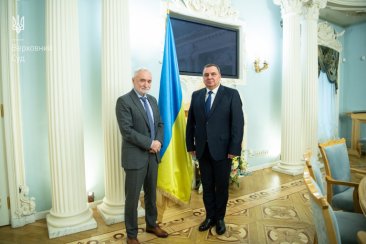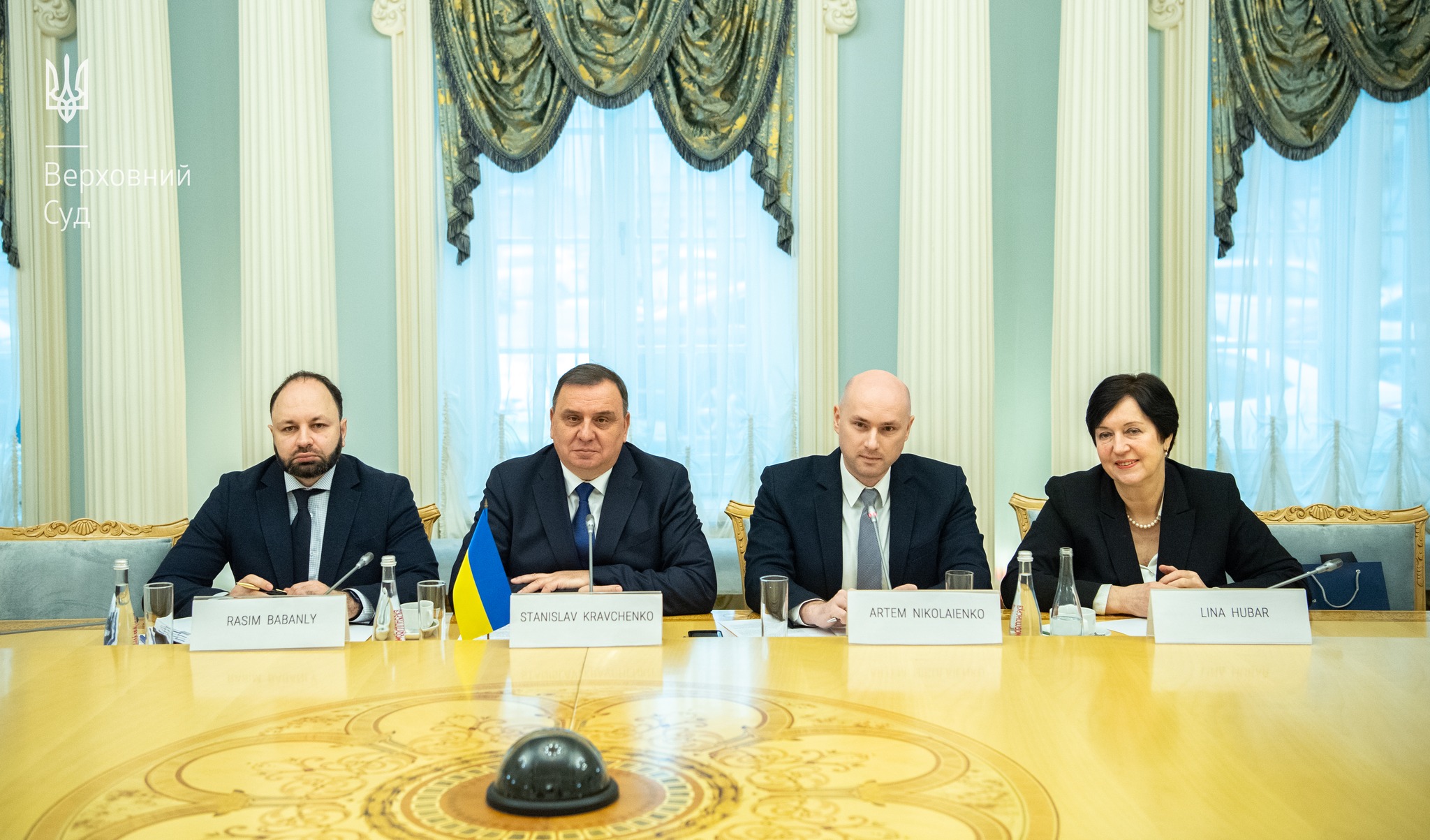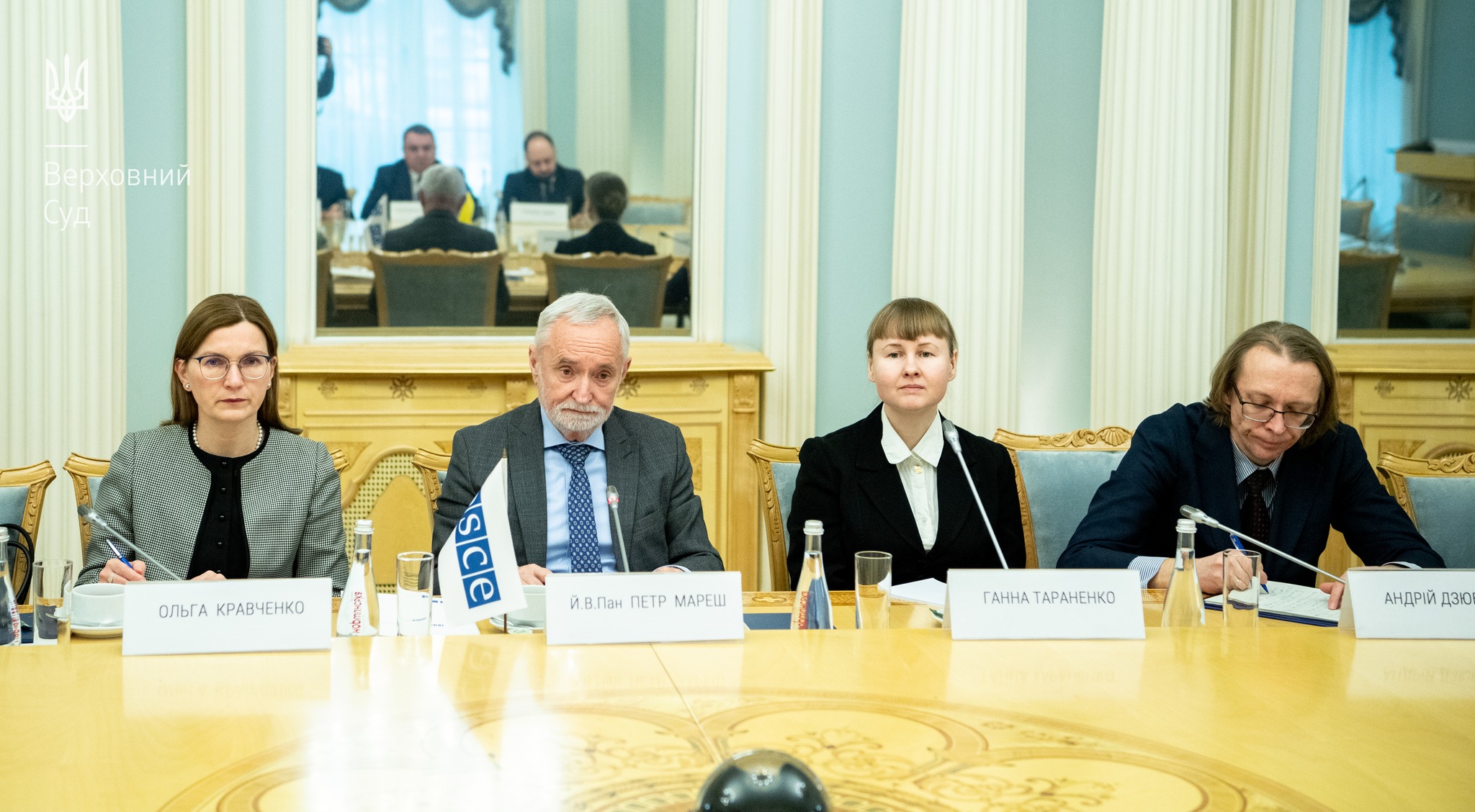Contact center of the Ukrainian Judiciary 044 207-35-46

Ukraine is going through extremely difficult times as it fights for its independence, and therefore international support is needed more than ever. In this regard, it is important that, as the experience of previous years shows, Ukraine and the OSCE have managed to find quite effective forms of cooperation that allow us to move forward.
This was emphasised by President of the Supreme Court Stanislav Kravchenko during a meeting with Ambassador, Special Representative of the OSCE Chairpersonship and OSCE Project Co-ordinator in Ukraine Petr Mareš.
Stanislav Kravchenko congratulated the Ambassador on his appointment and thanked the OSCE for its longstanding activities aimed at supporting democracy, the rule of law and European values, noting that the achievements of which the judiciary can be proud were made possible, in particular, thanks to the OSCE's support. In addition, such co-operation makes it possible to directly inform the international community about the processes taking place in the field of justice.
The President of the Supreme Court also informed the Ambassador about the challenges faced by the judiciary in the context of war, including security risks, changes in territorial jurisdiction of court cases, excessive workload and new categories of proceedings.

At the same time, Stanislav Kravchenko noted that Ukraine is fighting for its European future and therefore, even during the war, it does not stop implementing reforms aimed at improving the work of public authorities, including the courts.
Thus, last year, negotiations on Ukraine's accession to the EU began, and the Supreme Court did not stay away from this process: representatives of the Supreme Court were part of the Ukrainian delegation that took part in the second EU-Ukraine bilateral session in September 2024 as part of the screening of the compliance of national legislation with EU law.
According to the SC President, the judiciary is ready for the challenges that will be faced in the process of European integration, while reliable expert support from the OSCE is very important on this path.
‘Despite all the difficulties of this process, we understand that today, by setting ourselves tasks and gradually moving towards achieving compliance with EU requirements, we are already doing a lot for the development of our country,’ Stanislav Kravchenko emphasised.

According to Petr Mareš, it is very important that even during the war Ukraine thinks about its future in the EU and does everything in its power to achieve this goal. In addition, the Ambassador noted the resilience of Ukraine's judicial system in the face of an overwhelming workload, as evidenced by the impressive statistics on the number of cases received and reviewed, and stressed the importance of continued cooperation and assured that supporting Ukraine in its European integration process and providing the necessary expert assistance is a priority for the OSCE.
The meeting was also attended by Olha Kravchenko, Project Manager of the OSCE Support to Ukraine Programme "Assisting the Supreme Court and higher courts in implementing judicial reform and ensuring access to justice in times of war", Hanna Taranenko, Project Manager of the OSCE Support to Ukraine Programme "Safeguarding human rights through courts, Phase II", Rasim Babanly, First Deputy Chief of Staff - Head of the Department for Analytical and Legal Work, and Lina Hubar, Head of the Division for International Cooperation.